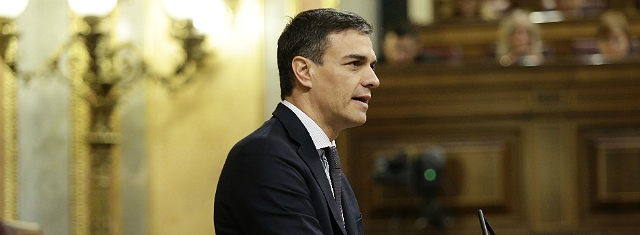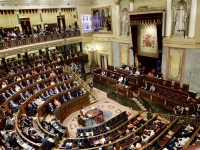Politics
The socialist Pedro Sanchez, new Spanish Prime Minister
No-confidence vote against Rajoy

Pedro Sanchez, new Spanish Prime Minister (Source: Press Office of Lower House)
USPA NEWS -
The General Secretary of the Spanish Socialist Party, Pedro Sanchez, became the new President of the Government on Friday, replacing the former Prime Minister Mariano Rajoy, after the no-confidence vote against the Government presented by the Socialists.
In his last speech as Prime Minister in Parliament, Rajoy said that "it has been an honor to leave a country in better condition than I found it." After the mandatory vote, the socialist candidate won 180 votes, while only 169 deputies voted against evicting the Government and one deputy abstained. Pedro Sanchez, who received the support of Catalan pro-independence, pro terrorist and Basque nationalists, and other minor formations, will take office this Saturday, after swearing or promising the office in the presence of King Philip VI.
The sentence that condemned the conservative Popular Party as a beneficiary of corruption in the party has led to the motion of censure that has knocked down Rajoy. The cleanliness in politics and the condemnation of corruption were the flags wielded by the new Prime Minister, Pedro Sanchez, in the debate. However, the Socialist Party is immersed in corruption trials, especially in Andalusia, with former regional presidents and consuelors accused. Nor are other formations like the centrist Ciudadanos or the extreme left of Podemos.
This reflects that Spanish politics needs to regenerate. While the new government decides whether to exhaust the legislature or call early elections, governance is expected almost impossible due to the fragility of the Socialist Party, which barely has 24 percent of the Hemicycle: 84 deputies. Little support to give the Spanish markets the peace they need. The risk premium shot up and the IBEX index of the Spanish stock market fell sharply.
Liability for this article lies with the author, who also holds the copyright. Editorial content from USPA may be quoted on other websites as long as the quote comprises no more than 5% of the entire text, is marked as such and the source is named (via hyperlink).






